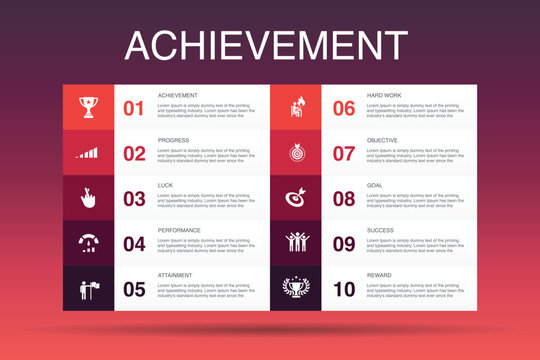As technology continues to advance at an unprecedented pace, it’s no surprise that the world of student research is also experiencing a significant shift. In particular, artificial intelligence (AI) is beginning to play a more prominent role in the research process, offering students new ways to enhance their studies and uncover insights that may have previously been overlooked. But what does this mean for the future of UK student research? In this post, we’ll take a closer look at how AI is being used to enhance student research, and explore some of the exciting possibilities that lie ahead. So if you’re curious about what the future holds for academic research in the UK, read on!

Introduction: The Importance of AI in Research
AI in Research is becoming increasingly important as technology advances. In the UK, students are beginning to use AI to enhance their research projects, allowing them to achieve more accurate and efficient results. AI can help students analyze data, identify patterns, and even make predictions based on their findings. This technology can also assist with tasks such as literature reviews and citation management. The use of AI in research projects has the potential to revolutionize the way students approach their work, enabling them to achieve more in less time. As AI continues to develop, it is likely that we will see even more innovative uses for this technology in the field of research.

Understanding AI and Its Role in Research Projects
Artificial Intelligence (AI) is the simulation of human intelligence processes by machines, especially computer systems. In research projects, AI can be used to analyze large amounts of data and identify patterns that would be difficult for humans to detect. This allows researchers to gain insights and make predictions that would not be possible with traditional methods. Machine learning is a subset of AI that involves training algorithms to learn from data and improve their performance over time. By using machine learning, researchers can create models that can accurately predict outcomes or classify data. These models can then be used to guide further research or inform decision-making processes. Overall, AI has the potential to revolutionize the way research is conducted and lead to new discoveries in a variety of fields.
Benefits of Using AI in UK Student Research
Efficiency and Accuracy are two major benefits of using AI in UK student research. With the help of AI, students can save time and resources by automating repetitive tasks such as data collection, analysis, and organization. This allows them to focus on more complex and creative aspects of their research projects. Additionally, AI algorithms can process large amounts of data quickly and accurately, reducing the risk of human error and increasing the reliability of research findings. This can lead to more robust conclusions and insights that can be used to inform future research or real-world applications. Overall, incorporating AI into UK student research has the potential to enhance the quality and impact of their work while also preparing them for a future where AI is increasingly prevalent in various industries.

Challenges of Implementing AI in Research Projects
While using AI to enhance research projects can offer many benefits, it also comes with several challenges for UK student researchers. One significant challenge is the need for access to high-quality data sets that are relevant to their research topic. Additionally, many students may not have the technical skills required to implement and use AI tools effectively.
Another challenge is ensuring the accuracy and reliability of AI-generated results. Students must be able to understand how algorithms work and address any biases or errors that may arise during analysis. Finally, ethical considerations such as privacy concerns and transparency must always be taken into account when using AI in research projects.
To overcome these challenges, students should seek guidance from experienced mentors who can provide support in navigating complex tools and techniques. Collaboration with other students on shared goals can facilitate better outcomes through collective learning experiences while addressing ethical issues jointly could improve study credibility in addition.
Tools and Techniques for Enhancing Research with AI
AI-Powered Data Analysis: Streamlining Research Processes
One of the most significant benefits of using AI in research projects is its ability to analyze vast amounts of data quickly and accurately. With AI-powered data analysis tools, UK students can streamline their research processes and obtain insights that would have been impossible to uncover manually. These tools use machine learning algorithms to identify patterns and trends in data, enabling researchers to make more informed decisions. By leveraging the power of AI, students can save time and resources while improving the quality of their research. With automated data analysis and machine learning algorithms, UK students can take their research projects to the next level.
Revolutionizing Literature Reviews with AI Assistance
AI can greatly enhance the process of conducting literature reviews for research projects. By utilizing natural language processing (NLP) algorithms, AI can quickly analyze and summarize large volumes of academic literature, saving students time and effort. AI-powered tools like IBM Watson Discovery and Semantic Scholar can also suggest relevant articles and identify key concepts within them. This not only streamlines the research process but also ensures that students have access to the most up-to-date and relevant information for their projects. Incorporating AI into literature reviews is a game-changer for UK student research, providing a powerful tool for enhancing the quality and efficiency of their work.
Maximizing Research Efficiency with Machine Learning Tools
Machine learning tools can greatly enhance the efficiency of research projects for UK students. By utilizing algorithms that can learn and adapt to data, these tools can quickly analyze large amounts of information and identify patterns that may have been missed by human researchers. This not only saves time but also improves the accuracy of results. Two key phrases to keep in mind when using machine learning tools are “data preprocessing” and “model selection”. Properly preparing data for analysis and selecting the appropriate model for the research question are crucial steps in maximizing the effectiveness of these tools.
The Ethical Implications of AI in Student Research
As with any technological advancement, the use of AI in student research comes with ethical implications. One key concern is the potential for bias in the data used to train AI models. It is important for students to carefully consider the sources and quality of their data, as well as the potential impact of their research on different groups of people. Additionally, there may be concerns around privacy and data protection when using AI tools. It is crucial for students to be transparent about their use of AI and ensure that they are complying with relevant regulations and ethical guidelines.

Case Studies: Successful Implementation of AI in UK Student Research
Case Studies: Successful Implementation of AI in UK Student Research
Machine Learning for Medical Diagnosis
In a project conducted by students at Imperial College London, machine learning algorithms were used to assist doctors in diagnosing heart diseases. The AI model analyzed patient data, including medical history and test results, and provided predictions with high accuracy rates. This significantly reduced the workload on doctors and improved diagnosis speed.
Natural Language Processing for Literature Analysis
At the University of Edinburgh, researchers incorporated natural language processing technology into their analysis of literary texts. Using advanced algorithms, they were able to analyze large volumes of text quickly and accurately, identifying patterns within the language that would have been difficult for human researchers to detect. This allowed them to draw new conclusions about authors’ writing styles and thematic content.
These case studies demonstrate how AI can save time and increase accuracy when integrated into research projects across different fields such as medicine or literature analysis. However, it is important to understand each project’s specific requirements before implementing AI tools so that any ethical considerations are also taken into account.

Ethical Considerations When Using AI in Research Projects
Ensuring Data Privacy and Security in AI-Enhanced Research Projects
AI-enhanced research projects often involve the use of sensitive data, making it crucial to ensure data privacy and security. Data privacy should be a top priority when implementing AI in research, as unauthorized access or breaches can result in severe consequences for both researchers and participants. It is also essential to consider data security measures such as encryption and secure storage to prevent theft or loss of valuable data. Researchers must uphold ethical standards by obtaining informed consent from study participants and ensuring their anonymity throughout the research process. Adhering to these principles can help maintain trust between researchers and participants while advancing knowledge through AI-enhanced research projects.
Mitigating Bias and Discrimination in AI-Driven Research Studies
AI-driven research studies have the potential to perpetuate bias and discrimination if not properly monitored. It is important to ensure that the data used to train AI models is diverse and representative of all groups. Additionally, researchers must be aware of their own biases and take steps to mitigate them during the research process. Transparency in the use of AI and its decision-making processes is also crucial in order to avoid perpetuating discriminatory outcomes. By actively addressing these issues, UK students can use AI to enhance their research projects while promoting fairness and inclusivity.
Maintaining Transparency and Accountability in AI-Augmented Research Processes
Maintaining transparency and accountability should be a top priority when integrating AI into research projects. It is important to disclose the use of AI tools and techniques in any publications, reports or presentations related to the research project. This helps ensure that results are not misrepresented due to AI-generated data. Additionally, it is essential to establish clear guidelines for handling data privacy and cybersecurity concerns that may arise from utilizing AI technology. By maintaining transparency and accountability in all aspects of an AI-augmented research process, UK students can build trust with their stakeholders and promote credibility within their respective fields.
Balancing the Benefits and Risks of AI Integration in Student Research Projects
As with any new technology, there are ethical considerations to take into account when implementing AI in student research projects. While AI can bring many benefits, such as increased efficiency and accuracy, it also poses certain risks. One key consideration is privacy – ensuring that personal data collected through the use of AI is handled responsibly and securely. Another important factor is bias – ensuring that the algorithms used by the AI do not perpetuate or amplify existing biases within society. Balancing these benefits and risks of AI integration requires careful consideration and attention to detail from all involved in the project.
Future Trends: What to Expect from AI-Enhanced Research
Artificial intelligence has already made significant contributions to the field of research, and its impact is only expected to grow in the future. As AI technology continues to advance, researchers will be able to use it to analyze data more efficiently and accurately than ever before. This will lead to new insights and discoveries that would have been impossible without AI.
One area where AI is expected to have a significant impact is in the field of medicine. Researchers are already using AI algorithms to analyze medical images and identify patterns that could help diagnose diseases earlier. In the future, AI could also be used to develop personalized treatment plans based on a patient’s unique genetic makeup.
Another area where AI is expected to make a big impact is in environmental research. By analyzing large amounts of data from sensors and satellites, researchers can gain a better understanding of how climate change is affecting our planet. This could lead to new strategies for mitigating the effects of climate change and protecting our environment.
Overall, the future of research looks bright with the help of AI technology. As researchers continue to embrace these tools and techniques, we can expect to see new breakthroughs and discoveries that will benefit society as a whole.
Conclusion: Embracing the Future of UK Student Research with AI
Embracing the Future of UK Student Research with AI means recognizing the potential of this technology to revolutionize the way we conduct research. As AI continues to evolve, it will become an increasingly important tool for students looking to conduct more efficient and effective research. By leveraging AI-powered tools and techniques, students can streamline their research process, uncover new insights, and produce more accurate results.
However, it’s important to remember that AI is not a silver bullet. While it can certainly enhance the research process, it’s not a replacement for critical thinking or human analysis. As such, students should approach AI as a complementary tool rather than a replacement for traditional research methods.
Looking ahead, we can expect to see even more exciting developments in the field of AI-enhanced research. From natural language processing to predictive analytics, there are countless ways in which AI can help us unlock new insights and push the boundaries of what we thought was possible. As such, UK students should be prepared to embrace this technology and use it to its fullest potential in their research projects.
In conclusion, AI technology is transforming the way research projects are conducted in the UK. From automating mundane tasks to extracting insights from vast amounts of data, AI is enabling students to conduct more efficient and accurate research. However, there are also challenges and ethical considerations that must be addressed when implementing AI in research projects. By embracing this technology and using it responsibly, UK students can stay ahead of the curve and produce groundbreaking research that contributes to our understanding of various fields. The future looks promising for those who embrace AI enhancement in their research endeavors!
Questions
Who can benefit from using AI in research projects?
Students in the UK can benefit from using AI to enhance research projects.
What is AI and how can it enhance research projects?
AI stands for artificial intelligence and it can enhance research projects by analyzing data and providing insights.
How can AI be incorporated into research projects?
AI can be incorporated into research projects by using tools like machine learning algorithms and natural language processing.
What are the potential objections to using AI in research projects?
Some may argue that AI is not accurate or ethical, but these concerns can be addressed through proper implementation and oversight.
How can AI improve the efficiency of research projects?
AI can improve the efficiency of research projects by automating tasks like data collection and analysis, allowing researchers to focus on more complex tasks.
Who can students consult for guidance on using AI in research projects?
Students can consult with professors or academic advisors for guidance on using AI in research projects, as well as online resources and tutorials.
